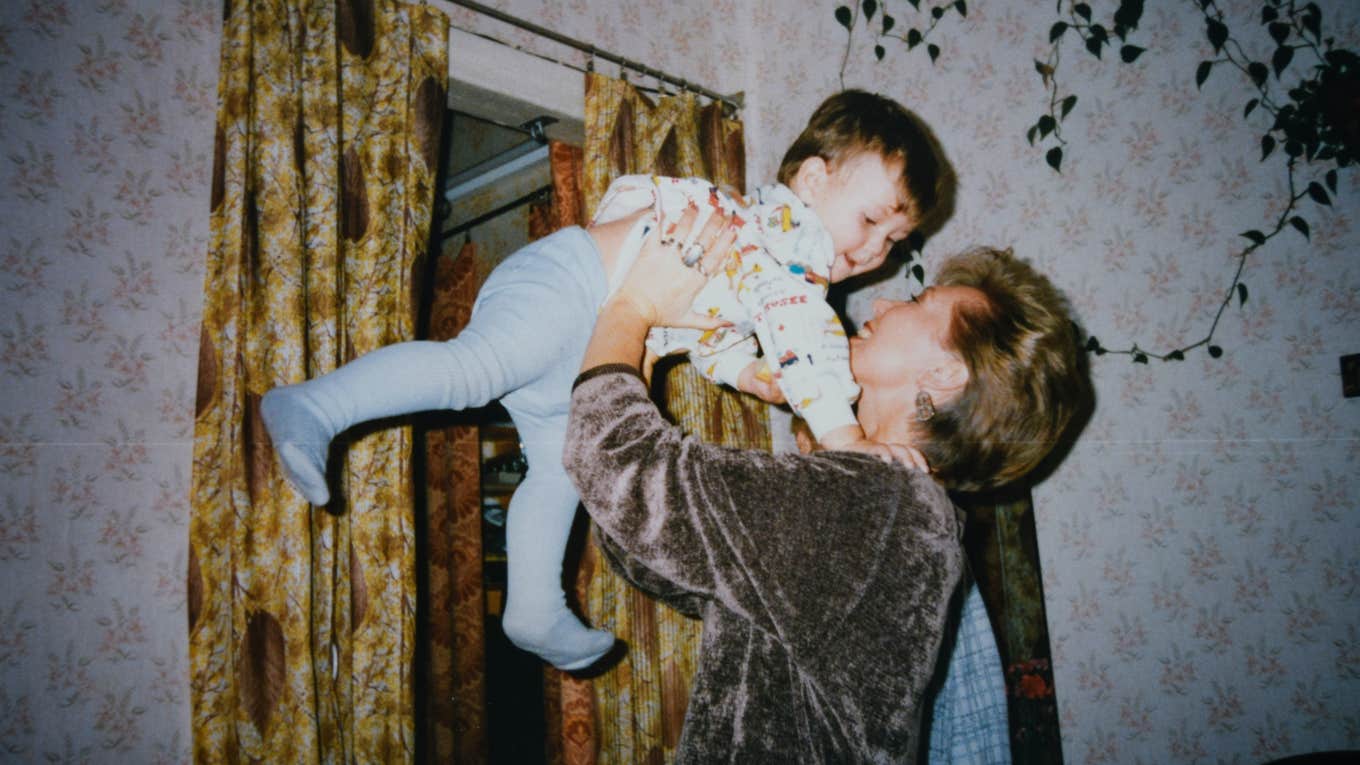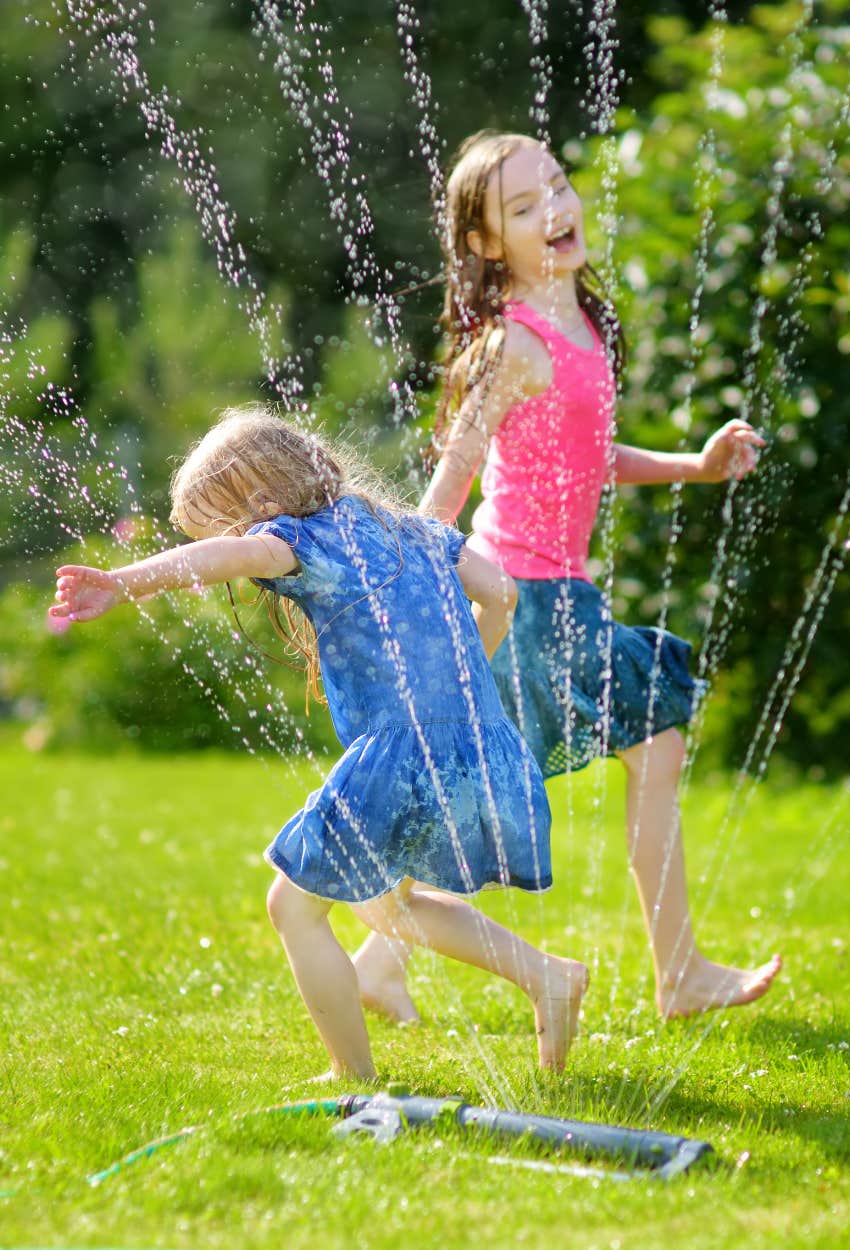Mom Reveals The 5 Small Ways She’s Giving Her Kids A Memorable 90s-Style Childhood
She's doing her best to recreate the magic of a 90s childhood in 2025.
 Lyudmila2509 | Shutterstock
Lyudmila2509 | Shutterstock In the 90s, well before iPads and artificial intelligence, childhood was an especially magical time. One mom is attempting to recreate this magic for her children in 2025.
Kristyna Cates (@kristynas_cozy_kitchen) is a content creator and mom of three. In a recent TikTok, she shared the simple ways she is giving her kids a fun and peaceful childhood reminiscent of the 1990s.
Here are the small ways a mom is giving her kids a memorable 90s-style childhood:
1. Her kids are always outside.
 MNStudio | Shutterstock
MNStudio | Shutterstock
In the 90s, kids spent their free time outside. Rather than sitting on the couch and staring at screens, they played make-believe, rode bikes around their neighborhoods, and played games like Capture the Flag and Manhunt. Cates encourages her kids to do the same.
It isn't anecdotal to say that kids today spend far less time outside than in decades prior. Research from 2016 found that, on average, children played outside for only about 4 hours a week, while their parents played outside for an average of 8.2 hours when they were children. Of course, this research was conducted before the COVID-19 pandemic and the introduction of TikTok, so the number is likely even lower now.
Yet, there are proven benefits of children playing outside, beyond giving their parents a much-needed break. According to Harvard Health, playing outside promotes exercise, allows for positive sun exposure, and encourages an appreciation for nature. It also teaches kids how to take risks, boosts creativity and socialization, and aids in executive functioning.
2. Her kids watch PBS and other slow-paced cartoons.
Many of today's popular kids' television programs are overstimulating, with bright visuals, fast-paced plots, and loud sound effects. Experts say this is detrimental to young children's developing brains. "It may lead to shorter attention spans, heightened irritability, and impulsive behaviors as their brains struggle to adjust to less stimulating environments," Dr. Zabina Bhasin, a Los Angeles-based child and adolescent psychiatrist, told Good Morning America.
Slow-paced 90s media, like "Franklin" and "Little Bear," on the other hand, are far better for kids and can even help regulate their emotions, improve behavior, and encourage better sleep. As an added benefit, these nostalgic shows are usually much more enjoyable than "CoComelon" and "Paw Patrol" for parents like Cates
3. Her family prioritizes slow weekend mornings.
For Cates' family, these mornings include pancakes, but the slow pace is what's most important. Many kids today are booked and busy. Between piano lessons, soccer practice, tutoring sessions, and pre-planned playdates, every single moment of their time is scheduled down to the second. While this may sound like a good thing, experts warn that overscheduling kids can actually prevent skill development.
"When adults provide the structure for their schedule, children have no need to make decisions about how to plan their day, solve a novel problem, manage their time, prioritize their activities, and so on," licensed clinical psychologist Ronald Stolberg explained. "It takes away the opportunity children have to make a mistake, and, therefore, their opportunity to figure out a solution and learn from it. With a little less structure, a child can learn to tolerate unexpected changes in their plans, which can be an invaluable lesson."
4. They play lots of board games.
 Frolphy | Shutterstock
Frolphy | Shutterstock
On a rainy day in the 90s, when outdoor play wasn't an option, kids often played board games like Sorry and Clue. While this may seem no different than playing a game found in the app store, child development experts say that board games are far more beneficial.
For one, board games are not a solitary activity. Unlike video games, which are often played alone or with strangers on a server, board games teach the value of teamwork and strengthen social bonds.
They also offer learning opportunities for young children and teens alike. "Even simple games help young players identify colors, count spaces, and develop hand-eye coordination and dexterity in moving cards and pieces around the board," Scholastic writer Megan Zander explained. She added that strategy games are great for older kids' frontal lobe development, too. Board games also teach kids how to lose gracefully and can help lengthen a child's attention span.
5. They have weekly pizza nights.
Most Americans agree that spending time with family is important. In fact, according to the Pew Research Center, 73% rate spending time with family as one of the most important things to them personally. Yet with all of our responsibilities, dedicated family time often slips through the cracks. By implementing weekly pizza nights, Cates ensures that at least one night a week, her family gathers for a meal, regardless of other obligations. Plus, they get pizza, which is certainly a bonus for her kids.
Audrey Jaber is a writer and associate editor with a bachelor's degree in journalism.

